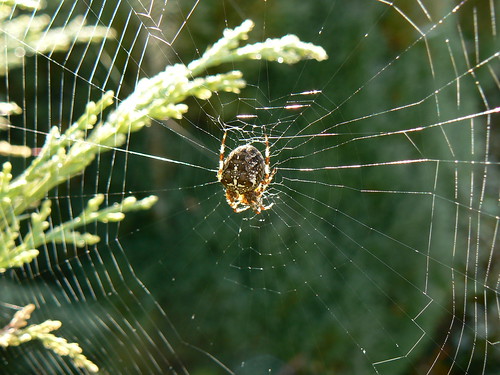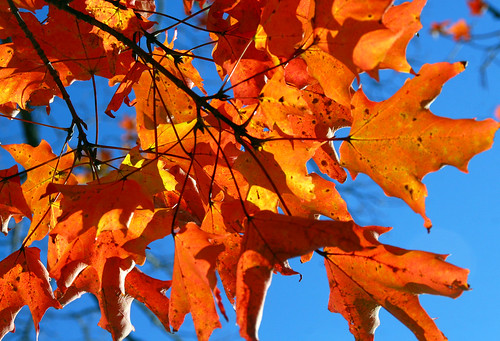Germany’s Indian Summer Posted by Constanze on Oct 12, 2016 in Language
Guten Tag! Today it’s time for another untranslatable German word – and I wanted to get this one in now because it’s all about that beautiful period between the end of Sommer (summer) and the beginning of Herbst (autumn) – which some of us will, hopefully, be enjoying right now! Today’s word is der Altweibersommer.
What does der Altweibersommer mean?
An Altweibersommer refers to the period between September and October when it’s still warm, bright and sunny, but autumn is creeping in. It’s essentially late summer, or what is known as an Indian Summer.
What is the breakdown of the word der Altweibersommer?
It consists of three words:
Alt – old
Weiber – plural of das Weib (the woman)
Sommer – summer
So the word literally translates to ‘old women summer’.
What do old women have to do with this time of year?!
Stick with me here, because there are a couple of theories on the make-up of this word. 🙂
The word das Weib (singular form of the plural Weiber, as seen in Altweibersommer) is another word for die Frau – woman. It’s a more colloquial word – not rude, exactly, but not overly respectful, either. So an ‘altes Weib’ would mean ‘old woman’, making Altweibersommer mean ‘old women summer’ – because the word refers to the ‘last days’ of summer.

Die Spinne (spider) and die Spinnwebe (spider’s web). Photo by garyt70 on flickr.com under a CC license (CC by 2.0)
But it could also be that the word Weiber comes from the old German word weiben, which means ‘to weave webs’. The modern German word is weben, meaning to weave. Spiders’ webs are called Spinnweben in German. Have you ever noticed how many spiders and spider webs you see at the end of summer and beginning of autumn (I call them ‘autumn spiders’)? They are EVERYWHERE! So in that respect, the word Altweibersommer could reference the spiders found during those glorious first days of autumn.
A third theory ties the two together, saying that the spider webs are reminiscent of old women’s silver hair!!
Whatever the reason, in German the word Altweibersommer refers to the period where summer meets autumn. 🙂
How would you use the word der Altweibersommer in a sentence?
In the same way you’d use the word der Sommer, you can use der Altweibersommer. Easy peasy!
What is the nearest English equivalent to der Altweibersommer?
‘Indian Summer’ has the closest meaning but, as always, doesn’t have the same literal meaning that makes this German word so interesting in the first place. 🙂
So there you go! As well as Frühling, Sommer, Herbst and Winter, there is another ‘season’ you didn’t know existed! Hope you are enjoying (or have enjoyed) your Altweibersommer 2016!
Type ‘seasons’ into the search bar on the right hand-side of this blog to find more posts on the different times of year. 🙂
Bis bald!!
Constanze x

Build vocabulary, practice pronunciation, and more with Transparent Language Online. Available anytime, anywhere, on any device.
About the Author: Constanze
Servus! I'm Constanze and I live in the UK. I'm half English and half German, and have been writing about German language and culture on this blog since 2014. I am also a fitness instructor & personal trainer.





Comments:
joyce constantine:
Vielen dank für die nützliche information. Sehr interessant
Allan Mahnke:
Many thanks! This is the sort of thing we don’t find elsewhere.
Richard Wetterer:
Hallo,
Der Altweibersommer kann nicht als Indian summer in meine Meinung übergesetzt sein. Indian summer bedeutet eine Zeit des warmes Wetter nach einen Frost. Es kann in Oktober , November, oder Dezember sein, wenigstens in der USA. Aber vielen Dank für ein interessantes neues Wort.
mit freundlich Grüßen,
Richard Wetterer